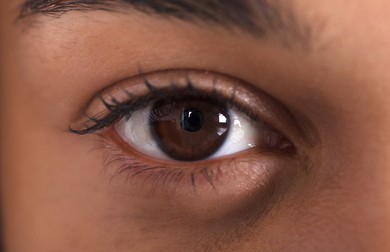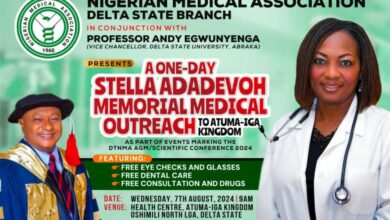
YOUR DIET IS A GREAT PLACE TO NOURISH YOUR EYE HEALTH, 6 TOP VITAMINS AND SUPPLEMENTS TO KEEP IT HEALTHY AND HAPPY
Your diet is a great place to start for nourishing your eye health. You may already be eating some of the best foods for healthy eyes, like carrots, broccoli and salmon. However, there are times when it can be difficult to ensure the essential vitamins and nutrients for your eyes are in your regular meals. That is why you may ask yourself: What supplements and vitamins are good for the eyes? You can use vitamins and supplements to help you cover any holes in your diet while working to strengthen your vision and stave off eye disease. Below are some of the best vitamins and supplements for eye health, but of course, you should always consult a doctor before making any changes to your health routine and to find what will work best for you.The best vitamins and supplements for eye health
In addition to a balanced diet, here are the best vitamins and supplements for your eyes.
(1) VitaminA: Vitamin A supports your vision, immune system, heart, lungs and overall growth and development. Specifically, vitamin A helps you see a full spectrum of light, as the vitamin produces pigments in the retina. It can also keep your eyes from drying out. You can find vitamin A in foods such as salmon, broccoli, fortified breakfast cereals, eggs and carrots. You have probably heard of the magic of carrots. Yes, it’s true: Carrots are great for your eyes. Carrots (and other vividly colored fruits and vegetables) are high in beta-carotene, which is a compound that your body uses to make vitamin A. Beta-carotene is also available in a supplement form, although it isn’t as common as vitamin A and is often more expensive.
Foods with vitamin A:
Salmon-Broccoli- Fortified breakfast cereals- Eggs- Carrots
(2) Vitamin C : It is like sunscreen for your eyes: It helps protect them from UV damage. The more time you spend outside and under the sun, the greater the risk for damage. According to the Medicals, too long in the sun can cause irreversible damage. Vitamin C can also lower your risk of cataracts, a disease that causes the lens of your eyes to become cloudy. While a recent study found that vitamin C supplementation was effective in patients who were already vitamin C deficient, more studies are needed to truly understand the relationship between vitamin C and a lower risk of cataracts. In addition to getting enough vitamin C, avoid tanning beds, and if you are outside, wear sunglasses and a hat to protect your eyes.
Foodswith vitamin C:
Kale- Broccoli- Brussels sprouts- Oranges- Lemons- Strawberries
(3) Omega-3s: Optometrists regularly recommend their patients consume omega-3s, and if a patient isn’t getting enough of these fatty acids in their diet, try a supplement. Omega-3s are mainly found in fatty fish such as tuna, salmon, mackerel or herring and some nuts and seeds. The Optometric Doctors points to omega-3s as a nutrient that can slow the progress of age-related macular degeneration. Studies have also found that they can help prevent dry eye disease. These nutrients are great for both conditions due to their anti-inflammatory effects.
Foods with omega:
3s- Tuna- Salmon- Mackerel- Herring- Chia seeds- Flaxseed- Walnuts
(4) Vitamin E: It is another powerful antioxidant, vitamin E is vital to all our cells and cell functions. It helps to protect our bodies from cancer-causing free radicals and plays an important role in vision. Studies have shown that vitamin E can help protect the retinas from free radicals that can cause eye disease.Vitamin C, another antioxidant, has more properties that help regeneration. Vitamin E can only help to protect the cells already there. But vitamin E can slow the progression of age-related macular degeneration that even the optometry’s recommends 400 IU of vitamin E a day.
Foods with vitamin E:
Sunflower seeds – Almonds- Peanuts- Collared greens- Red bell peppers- Mangoes- Avocados
(5) Zinc: Zinc is found in almost all multivitamins because it is such an essential nutrient to the body. It is used to boost the immune system and help the body heal from wounds quickly. Zinc also aids in eye health. Zinc helps vitamin A create melanin (a pigment that protects the eyes) and may shield the eyes from age-related macular degeneration and it has been recommended for 40 to 80 mg a day to slow the progression.
Foods with zinc :
Meat- Shellfish- Chickpeas- Lentils- Pumpkin seeds- Cashews- Almonds- Eggs- Cheese- Milk
(6) Lutein and zeaxanthin: Lutein and zeaxanthin are known to be important to our eyes. Lutein and zeaxanthin are carotenoids found in red and yellowish fruits and vegetables, as these compounds give the produce their vibrant colors. Carotenoids, also powerful antioxidants, are vital to eye health. They protect the eyes from free radicals that can cause damage. Lutein and zeaxanthin, specifically, have been found to prevent damage to retinas.These carotenoids can also slow the progression of age-related macular degeneration and it has been recommended a daily amount of 10 mg of lutein and 2 mg of zeaxanthin. While you can find lutein and zeaxanthin in supplement form, one bottle is on the pricier side. You may find it better, easier and more affordable to just eat more fruits and vegetables.
Foods with lutein and zeaxanthin
Kale- Spinach- Peas- Broccoli- Orange juice- Red peppers- Honeydew melons- Grape




